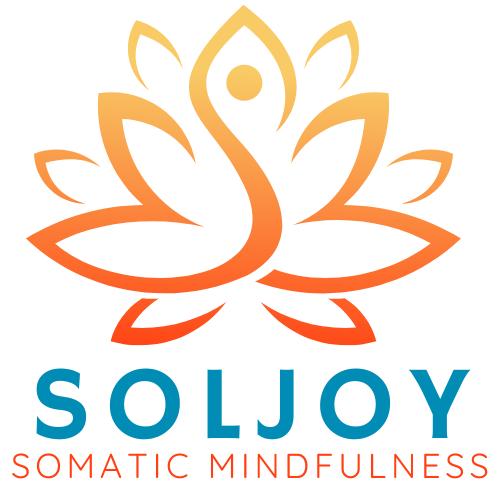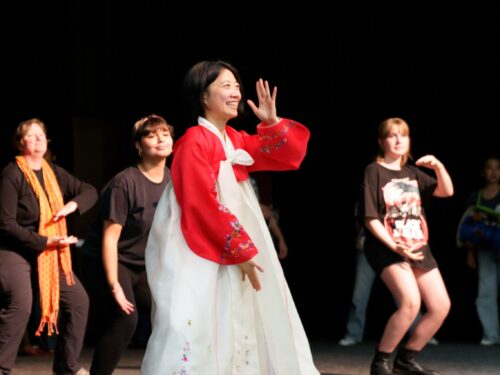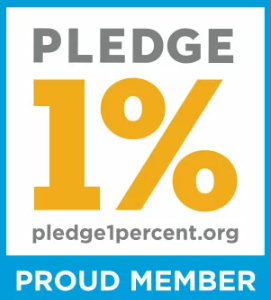
What is your relationship to trauma? Do you avoid, ignore, suppress, deny, or try to fix it? Consider all these ways of relating to trauma will only make it grow bigger. This picture is with a friend Darryl Riley who was wrongfully convicted at age 16, growing up in a and in prison for several years. Years later, he has been clean of all drugs for 12 years, runs 3 businesses successfully, while founding a non-profit Up From Slavery Initiative helping the black community through racial justice, financial literacy, and wellness. While Daryl’s story has many traumatic events throughout his life, often, we fail to realize hidden trauma that may be impacting our wellbeing and happiness today.
Unrealized Trauma
For myself, growing up with loving parents and my sister in a nice home had me unaware I carried any trauma. But then it would surface in unexpected ways.
For example, I saw an Indian American woman speak as a keynote who later became a congress woman for our state. Unexpectedly, I began bawling silently in my chair and had no idea why. Days later, I realized it was the first time I saw a woman of color keynote at the podium–who looked like me. Having grown up in the 80’s in nearly all white communities, with extremely few minorities in media, I simply had no idea of any impact of being a minority–that’s just how it was.
For many of my clients, they don’t realize they have any trauma until it gets triggered unexpectedly by some sequence of situations. Perhaps you have someone in your life who was part of 9-11, is a veteran, had a traumatic upbringing, or other hidden incident they don’t share with anyone, impacting them today.
That was my dad. He grew up a Korean war orphan. At age 3, his first memory was looking at the window shouting “Plane! Plane!” Those planes were dropping bombs on his city, as he fled south to Busan on his grandma’s back as the Korean War had begun.
The first 30 years of his life were fairly traumatic from his military experiences, fighting in gangs, to being financially and physically impoverished. But he never spoke of this growing up.
Eventually he made it to the US, earned his Ph.D. in chemical engineering, met my mom and started our family. After working at Battelle, a research lab for the Hanford related projects, he became a global businessman connecting Korean technology with US distributors.
My dad looked so successful. Only in looking back, is it obvious as my dad’s childhood was traumatic. To this day I believe he has undiagnosed PTSD. But our family never acknowledged it because he was so high functioning. It was only in later years, certain triggers emerged. When his life had calmed down enough from retirement, he chose to face what lies beneath.
With coaching clients, I’ve learned the most put together, successful people all have some sort of traumatic experience whether they realize it or not.
Is that you? What are hardships and challenges you faced growing up or recently face today? You can simply pay attention and be mindful everytime you snap, react, get triggered by going within and asking your heart “What is your message for me?”
Chronic Trauma
Trauma can also be chronic. My dad’s now 77 years old. He’s done lots of healing the last two years, and as he shares–they’ve been the happiest 2 years of his life. Then unexpectedly, he recently had unexpected brain surgery diagnosed with Bilateral Subdurmal Hemotoma. This is a fancy name for a brain blood clot.
Thus, trauma can also come in chronic forms–it doesn’t have to be a singular event . For example, caretaking elderly parents. Do you or someone you know has experienced caretaking for a parent. For those who are caretaking for parents, I had no idea all that it takes. It’s like being on call 24/7 requiring your full mind, body, and heart that is exhausting.
As we head into week 3, and we’re just getting started as he goes in for a second non evasive procedure next Monday to help with prevention. Another night at the ER (no longer phased by visits there) but don’t like the energy there.
Now more than ever, self care is essential. There’s a new tagline AI loves “self care isn’t selfish, it’s essential” and while this phrase has gotten popularized–it’s legit. As people recover from the impacts of life events, the pandemic, years later–it’s becoming seriously critical to master trauma staying calm amid stress.
Without facing your old traumas, your traumas will continue knocking on your door in louder ways left ignored or suppressed.
Facing Trauma by Daring to Feel
Instead, you can face it by daring to feel than assume there is no trauma.
My clients learn how to face trauma that they may not even be aware of stored in the body’s cells by mastering one energy principle I call “Dare to Feel.”
Instead, simply allow the feeling that the traumatic experience gives you to be felt 100% and accepted as it is. I know, I know. Easier said than done.
However, when my clients have the courage to DARE TO FEEL most of my clients experience releasing an enormous weight off their shoulders. They feel lighter and brighter by simply feeling, allowing and accepting the heavy energy.
You can’t live your soul’s joy when your’e burdened by past experiences or trauma. Face them. The true work of facing trauma by daring to feel isn’t as bad as one imagines when you have the courage to fully feel what’s you’re afraid to feel. The reward far outweighs the fear once you feel to the other side.
#trauma #PTSD #emotionalresilience #emotionalintelligence #coaching
Embody your SolJoy
About the Author: Anna Choi, Founder & CEO of Soljoy, 2x TEDx Speaker, Bestselling Author, Energy Master, Black Belt, and Performance Artist serves high achieving BIPOC and ally leaders to shift from scattered overwhelm to a relaxed presence tapping into boundless energy so they feel more health, happiness, and peace. Trained by two enlightened energy masters, Ilchi Lee and H.H. Sai Maa, she distills ancient wisdom into modern day mindfulness practices serving thousands of students to elevate humanity’s consciousness. Learn more at www.soljoy.life





